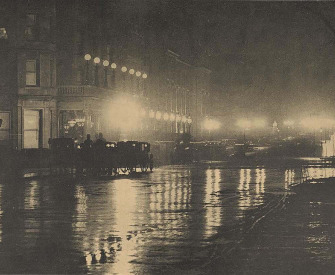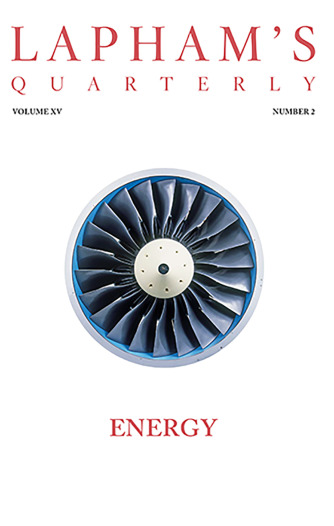Are we not ourselves nature, nature without end?
—Stanisław Lem, 1961Against Nature
Karl Marx on the materials of production.
Labor is, in the first place, a process in which both man and nature participate, and in which man of his own accord starts, regulates, and controls the material reactions between himself and nature.
He opposes himself to nature as one of her own forces, setting in motion arms and legs, head and hands, the natural forces of his body, in order to appropriate nature’s productions in a form adapted to his own wants. By thus acting on the external world and changing it, he at the same time changes his own nature. He develops his slumbering powers and compels them to act in obedience to his sway. We are not now dealing with those primitive instinctive forms of labor that remind us of the mere animal. An immeasurable interval of time separates the state of things in which a man brings his labor power to market for sale as a commodity from that state in which human labor was still in its first instinctive stage. We presuppose labor in a form that stamps it as exclusively human. A spider conducts operations that resemble those of a weaver, and a bee puts to shame many an architect in the construction of her cells. But what distinguishes the worst architect from the best of bees is this, that the architect raises his structure in imagination before he erects it in reality. At the end of every labor process, we get a result that already existed in the imagination of the laborer at its commencement. He not only effects a change of form in the material on which he works but he also realizes a purpose of his own that gives the law to his modus operandi, and to which he must subordinate his will. And this subordination is no mere momentary act. Besides the exertion of the bodily organs, the process demands that during the whole operation, the workman’s will be steadily in consonance with his purpose. This means close attention. The less he is attracted by the nature of the work, and the mode in which it is carried on, and the less, therefore, he enjoys it as something that gives play to his bodily and mental powers, the more close his attention is forced to be.
The elementary factors of the labor process are the personal activity of man, i.e., work itself; the subject of that work; and its instruments.
The soil (and this, economically speaking, includes water) in the virgin state in which it supplies man with necessaries or the means of subsistence ready to hand exists independently of him and is the universal subject of human labor. All those things which labor merely separates from immediate connection with their environment are subjects of labor spontaneously provided by nature. Such are fish we catch and take from their element, water, timber we fell in the virgin forest, and ores we extract from their veins. If, on the other hand, the subject of labor has, so to say, been filtered through previous labor, we call it raw material; such is ore already extracted and ready for washing. All raw material is the subject of labor, but not every subject of labor is raw material: it can only become so after it has undergone some alteration by means of labor.
An instrument of labor is a thing, or a complex of things, the laborer interposes between himself and the subject of his labor, and which serves as the conductor of his activity. He makes use of the mechanical, physical, and chemical properties of some substances in order to make other substances subservient to his aims. Leaving out of consideration such ready-made means of subsistence as fruits, in gathering which a man’s own limbs serve as the instruments of his labor, the first thing of which the laborer possesses himself is not the subject of labor but its instrument. Thus nature becomes one of the organs of his activity, one that he annexes to his own bodily organs, adding stature to himself in spite of the Bible. As the earth is his original larder, so too it is his original toolhouse. It supplies him, for instance, with stones for throwing, grinding, pressing, cutting, etc. The earth itself is an instrument of labor, but when used as such in agriculture implies a whole series of other instruments and a comparatively high development of labor.

Karl Marx
From Capital. “We cannot transform what’s going on around us without transforming ourselves,” writes political economist David Harvey of this chapter from the first volume of Capital. “Conversely, we can’t transform ourselves without transforming everything going on around us.” For Marx, the post-Columbian exploitation of the planet and its people “signalized the rosy dawn of the era of capitalist production.” Recent estimates suggest that humans already appropriate about 40 percent of all potential plant matter available to heterotrophic organisms.



